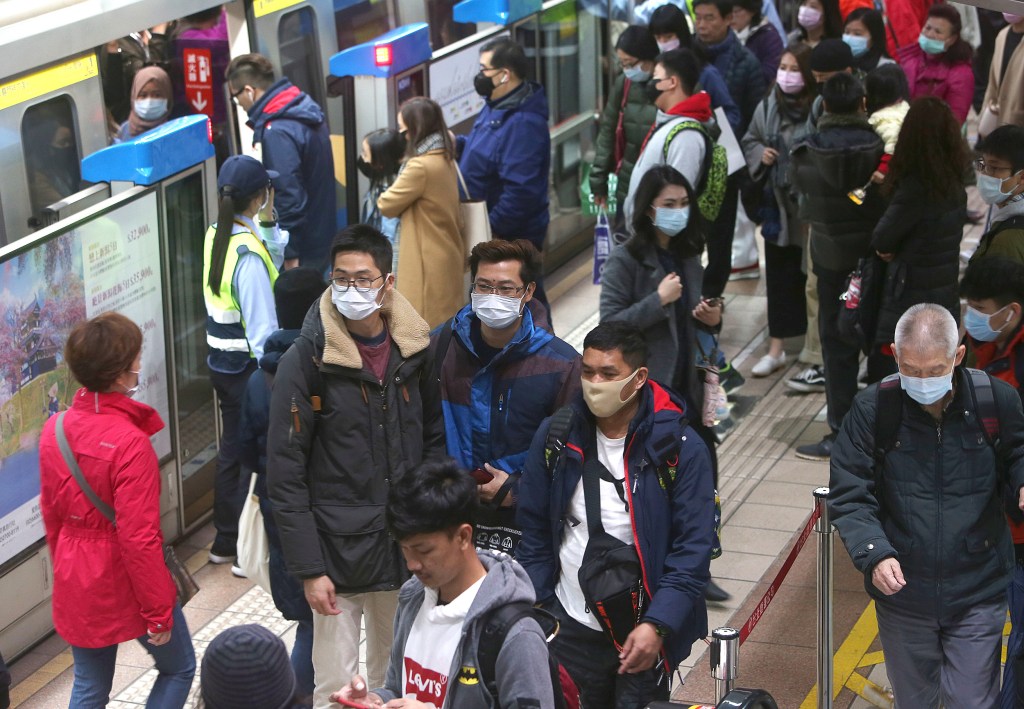The Coronavirus Update
-
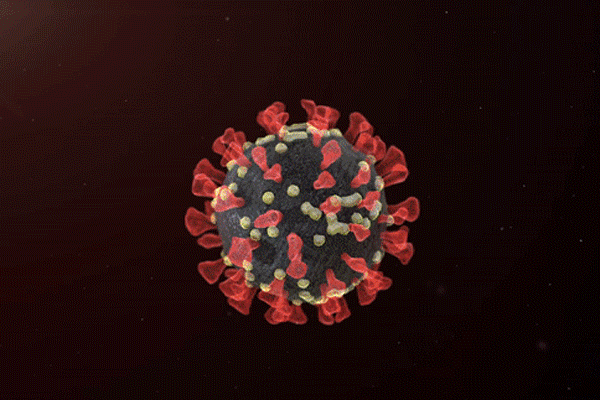 Science & Tech
Science & TechStaying ahead of virus mutations
EVEscape uses evolutionary and biological information to predict how a virus could change to escape the immune system.
-
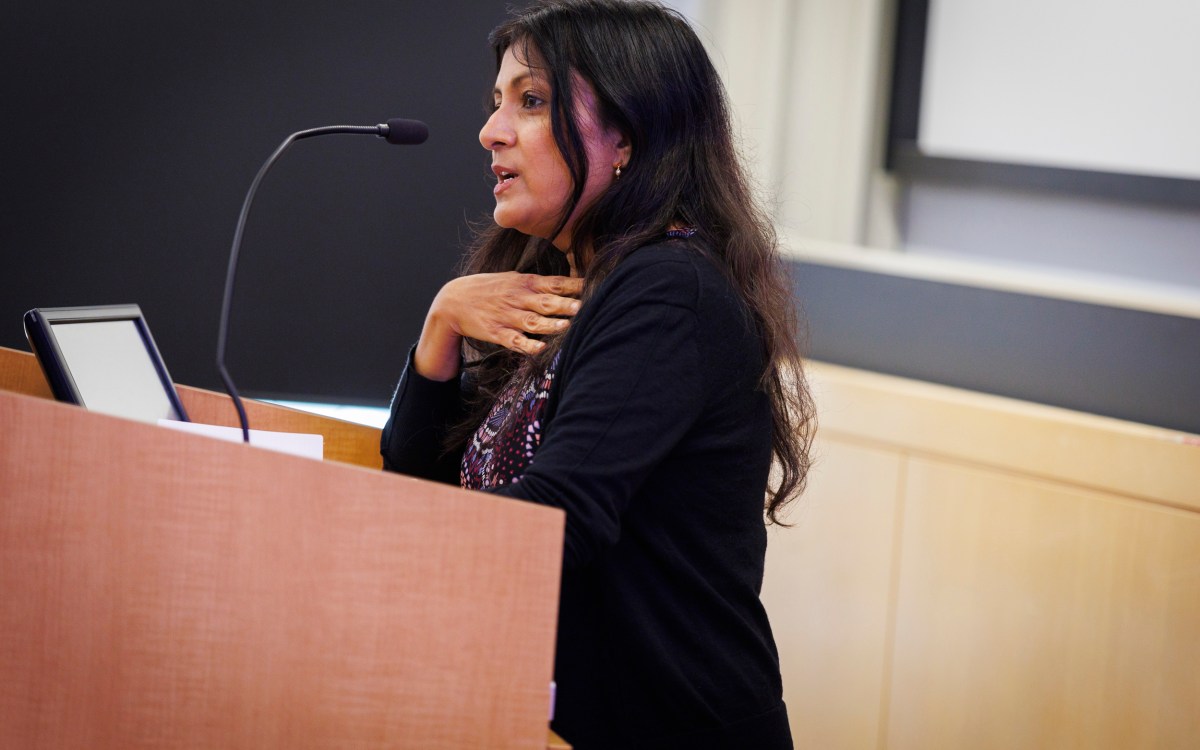 Nation & World
Nation & WorldHow federal missteps opened door to COVID misinformation
Anti-vaxxers, others benefited from mistrust engendered by early stumbles in messaging about virus, prevention, says New York Times health and science reporter Apoorva Mandavilli.
-
 Science & Tech
Science & TechA COVID cure worse than the disease?
Some worry a treatment that kills SARS-CoV-2 by helping it mutate could spawn a super virus. New research weighs in on its “evolutionary safety.”
-
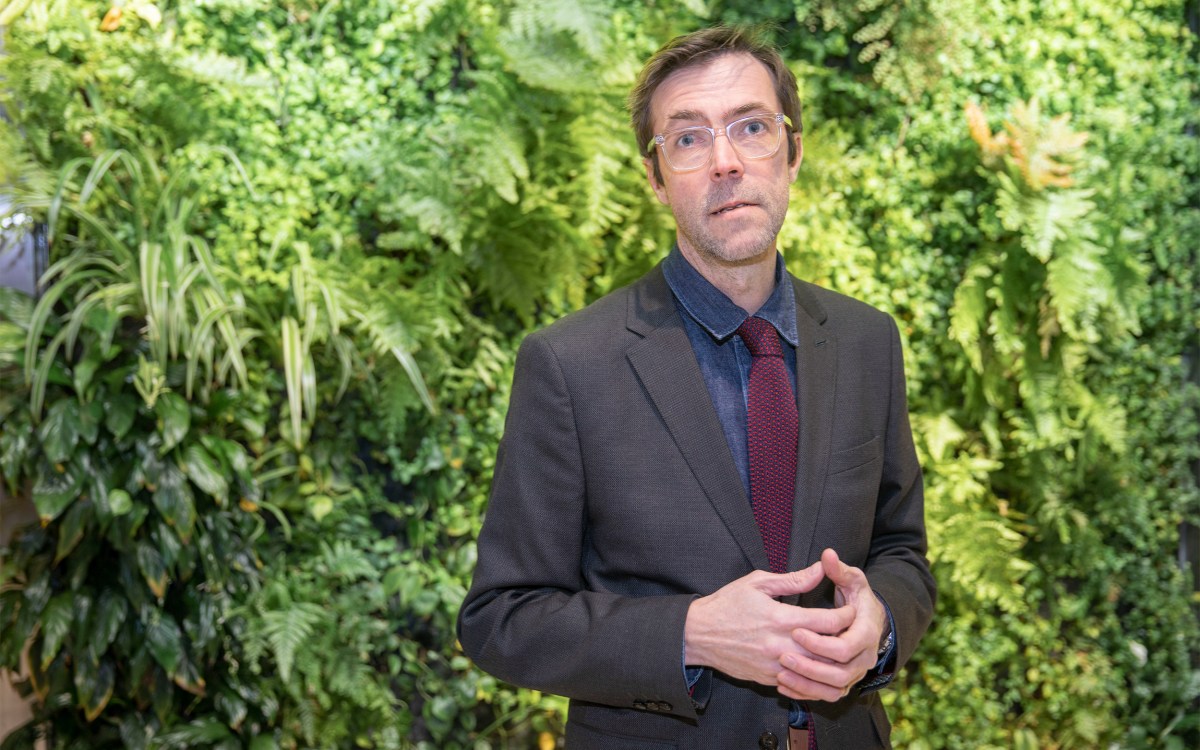 Health
HealthHow durable is your immunity?
William Hanage, an associate professor of epidemiology, talks about hybrid protection, vulnerability of older people, and the wisdom of Taylor Swift.
-
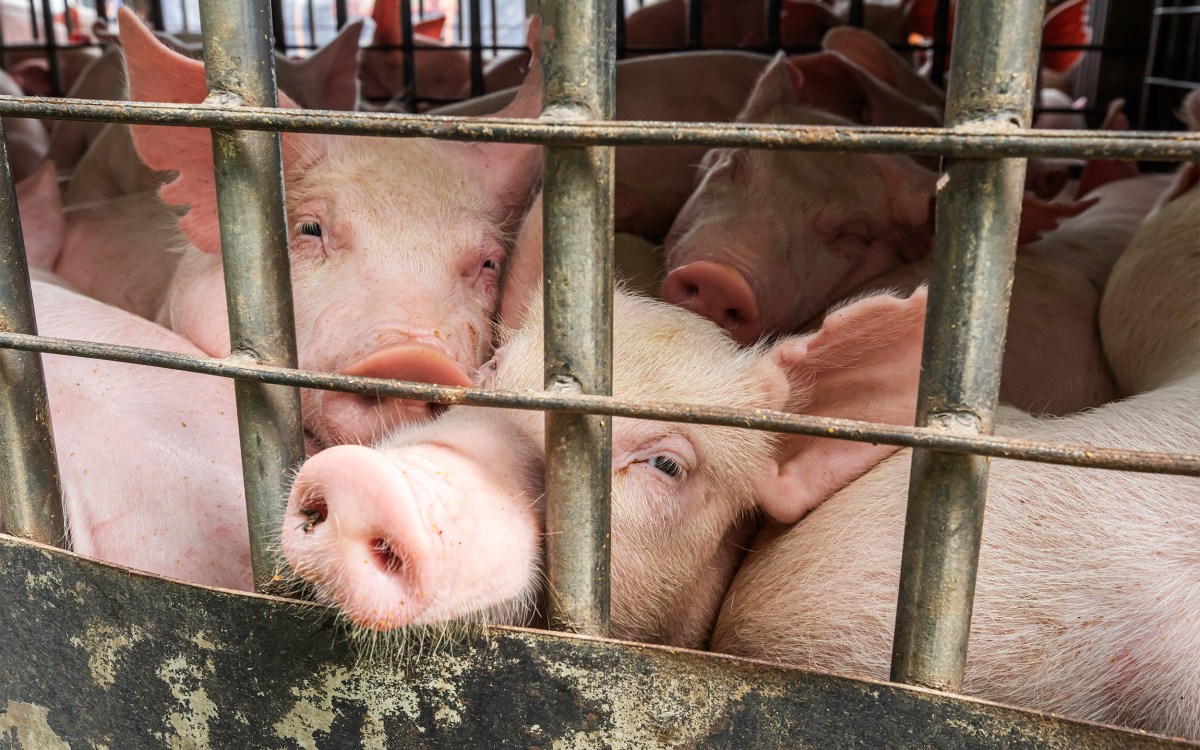 Health
HealthCOVID-19 came from animals. Why aren’t we working to prevent new scourge?
A new study suggests we are as vulnerable as ever to the emergence of another virus as deadly, or even more so, than COVID-19.
-
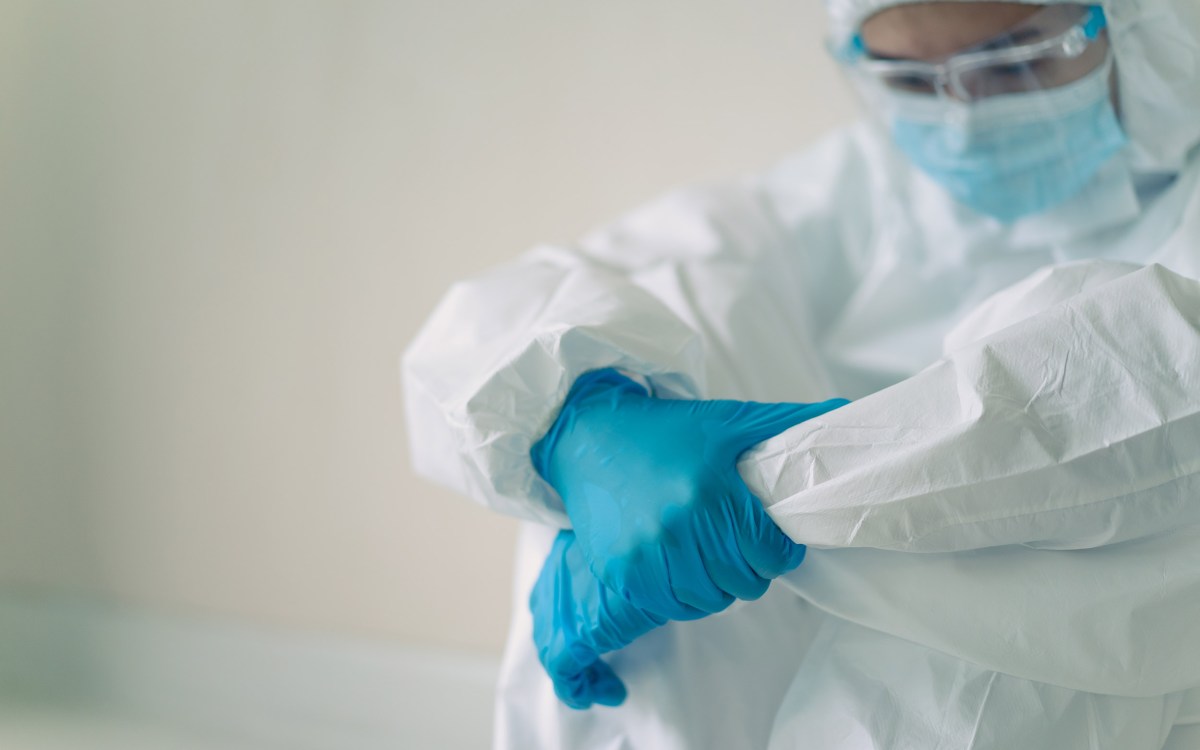 Health
HealthDoctors not the only ones feeling burned out
Through a national survey, researchers identified prevalent work overload, burnout, and intent to leave health care professions among nurses, clinical staff, and non-clinical staff, including housekeeping, administrative staff, lab technicians, and food service workers.
-
How to reduce the spread of coronavirus
Health experts highlight basic hygiene measures to prevent infection spread of the new coronavirus that has affected more than 90,000 around the world.

-
Coronavirus screening may miss two-thirds of infected travelers entering U.S.
Harvard epidemiologist Marc Lipsitch says two-thirds of travelers with coronavirus who are entering U.S. may have been missed by screening efforts.

-
Harvard details coronavirus outbreak plans
Harvard details plans to ensure safety, health, and productivity of community amid coronavirus outbreak.
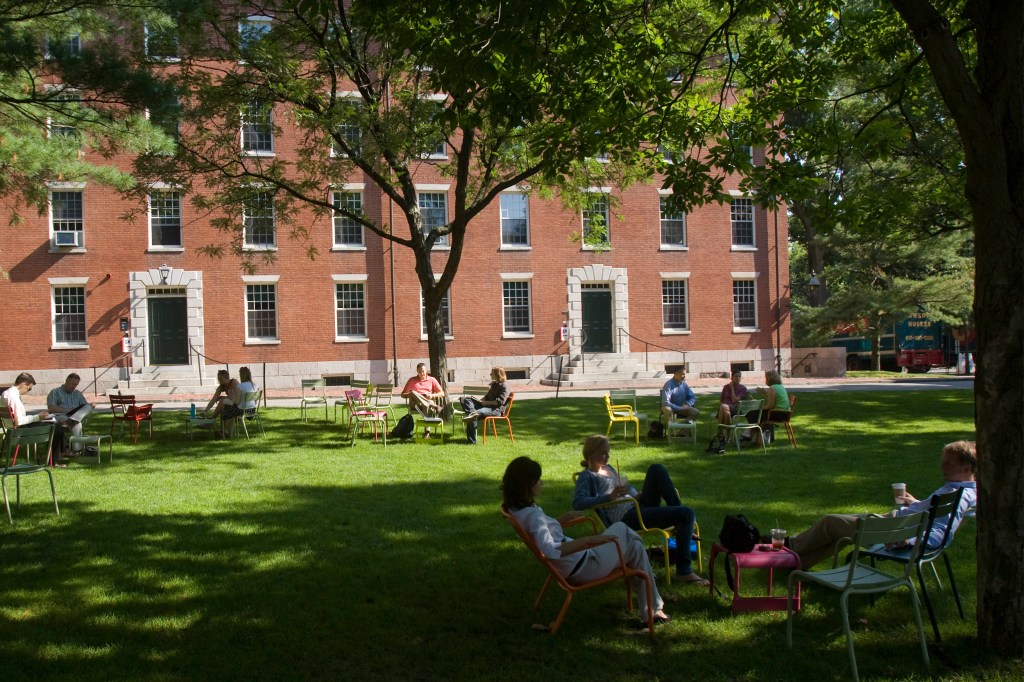
-
So how bad is coronavirus in U.S.? We don’t know yet
A rapid expansion of coronavirus testing is needed to understand the extent and nature of the epidemic’s track in the U.S., Harvard experts said.

-
A big coronavirus mystery: What about the children?
A key unanswered question in the coronavirus epidemic concerns why children seem to be getting fewer or less-serious infections from the new contagion.
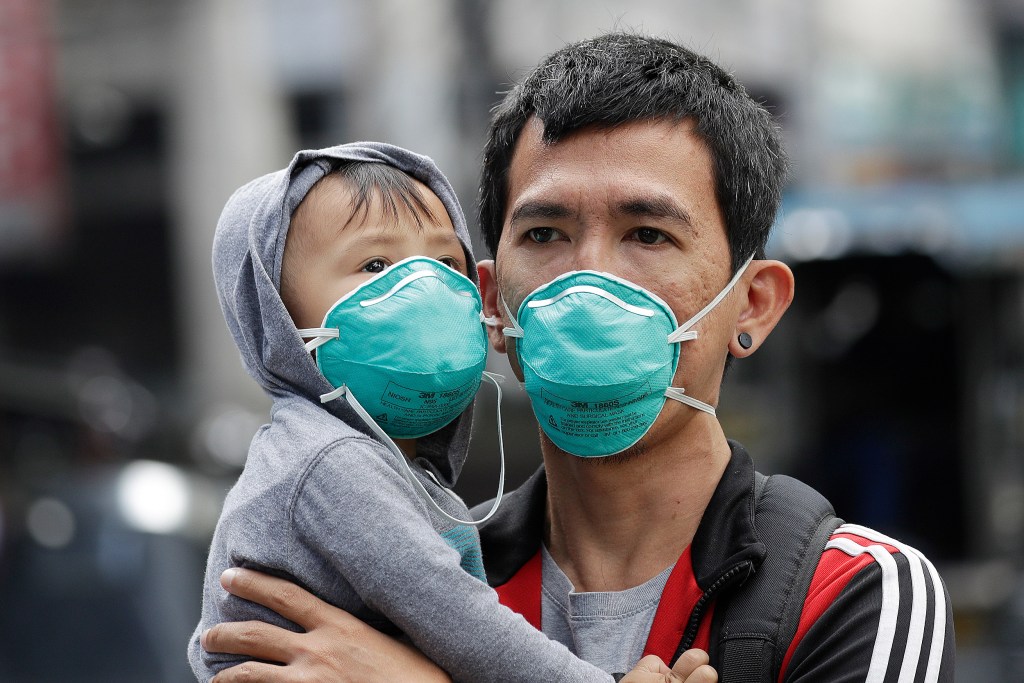
-
A ‘call to duty’ to battle a deadly global threat
Boston-area researchers are collaborating as part of an international partnership working on a response to the new coronavirus.
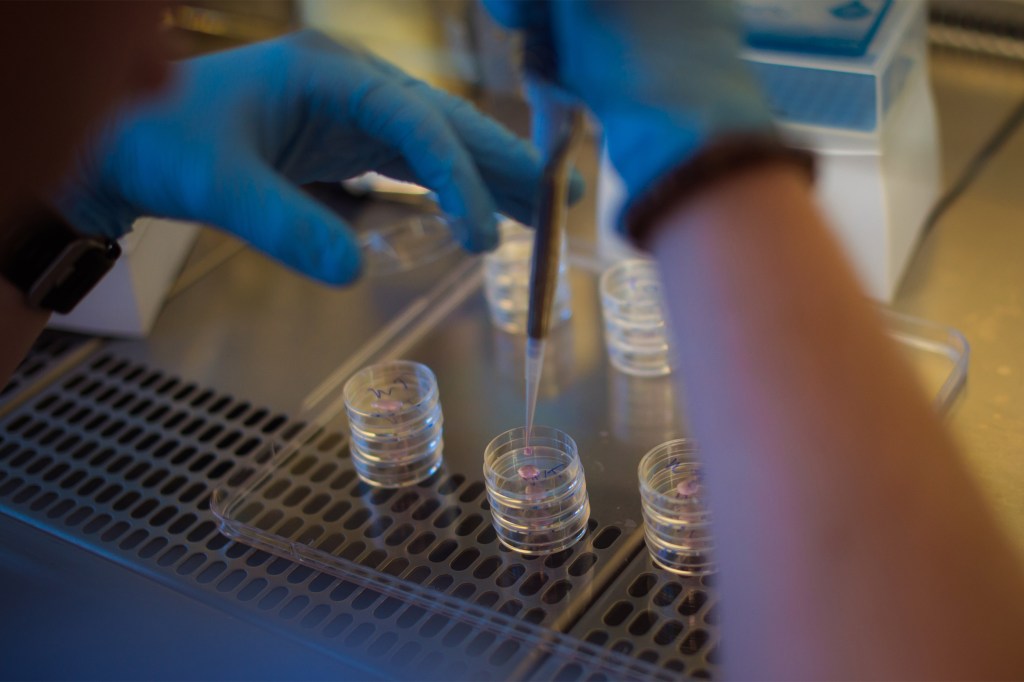
-
Scientists from Harvard, China to unite against coronavirus
With nearly 78,000 cases and more than 2,300 deaths from the novel coronavirus, Harvard University scientists will join forces with colleagues from China to improve diagnostics, develop vaccines to prevent new infections, and antiviral therapies to treat existing ones.

-
Health officials expect coronavirus to spread worldwide
Latest updates on the new coronavirus from a Facebook Live event sponsored by the Forum at Harvard T.H. Chan School of Public Health and PRI’s The World.
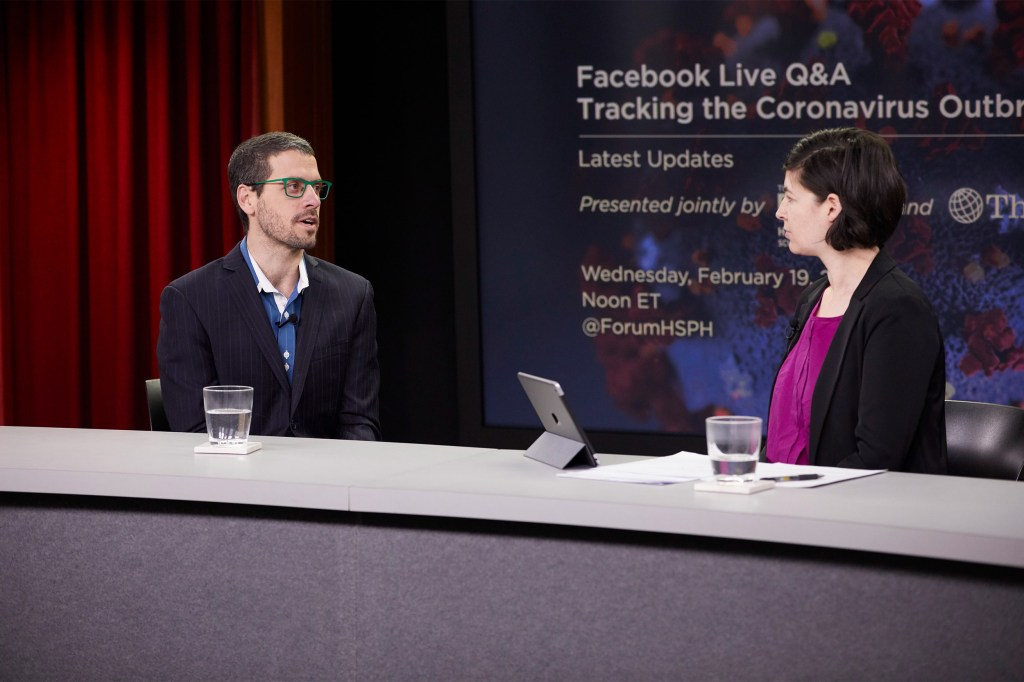
-
Coronavirus likely to infect the global economy
A Harvard Business School expert says effects will strengthen as manufacturers everywhere feel the pinch of slowing one of the world’s largest economies.

-
Coronavirus likely now ‘gathering steam’
Harvard’s Marc Lipsitch said evidence indicates that the international cordon keeping coronavirus cases bottled up in China is a leaky one, and it’s likely that the relative handful of global cases reported so far are undercounted. If true, that will lead to widespread illness internationally, including in the U.S.
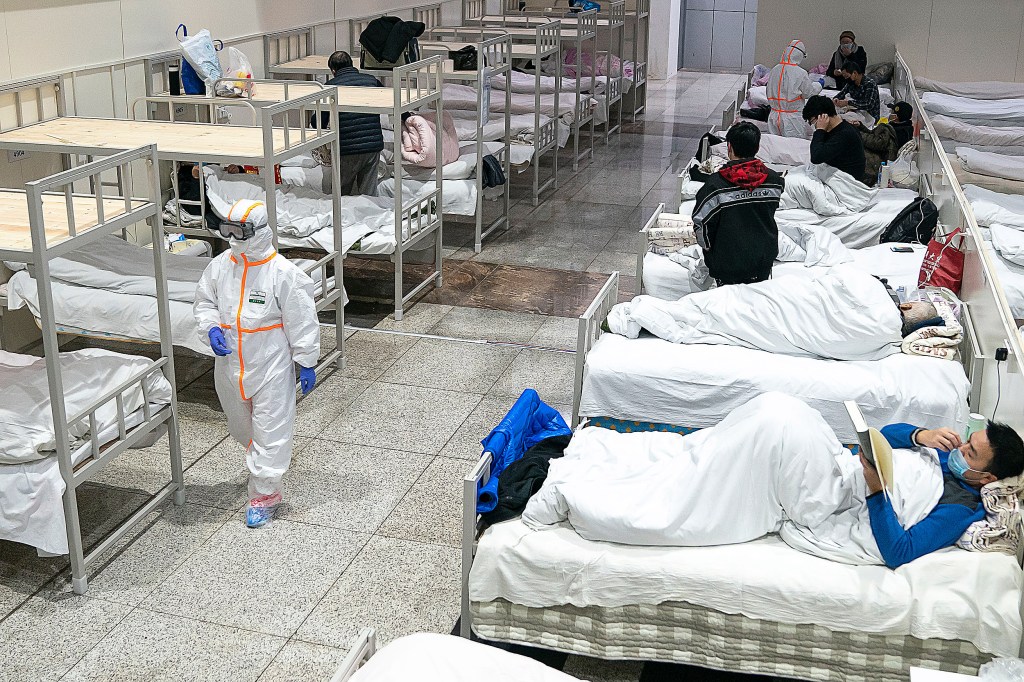
-
Coronavirus cases hit 17,400 and are likely to surge
Harvard epidemiologist Michael Mina said as many as 100,000 people are likely already infected with the new coronavirus, with many more likely to come.
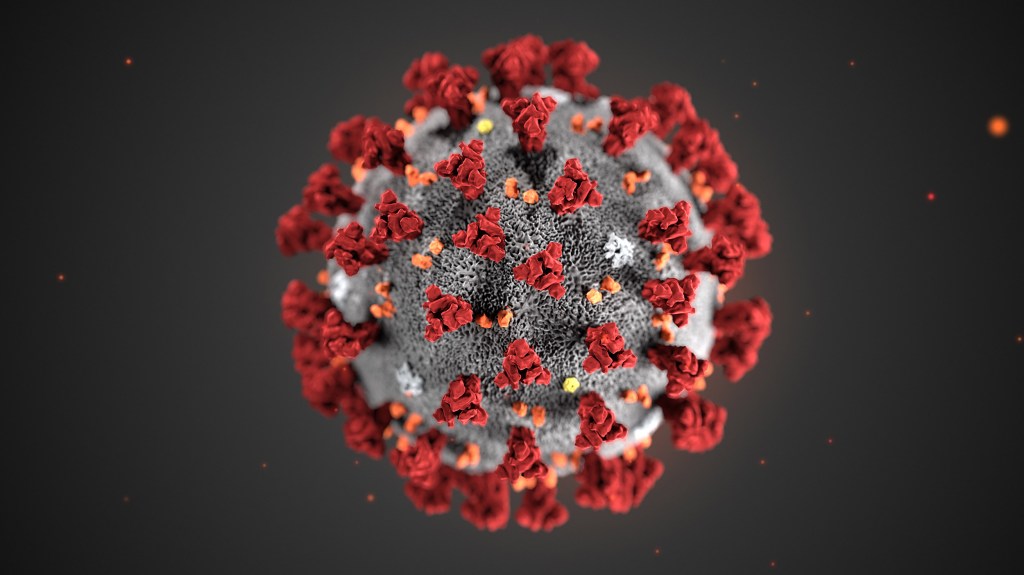
-
What we know — and don’t know — about the coronavirus outbreak
As the number of coronavirus cases rapidly grows, the Gazette spoke with Professor of Epidemiology Marc Lipsitch, an expert in the spread of infectious disease and director of the Center for Communicable Disease Dynamics.
